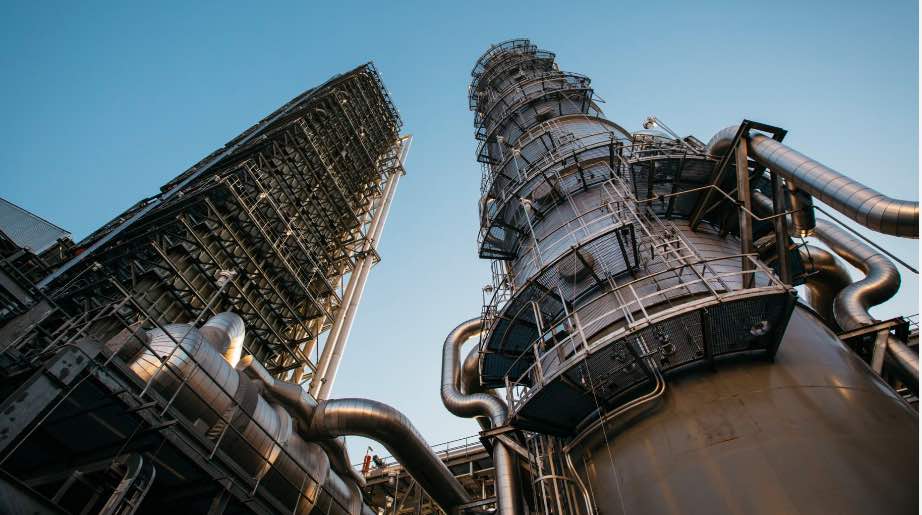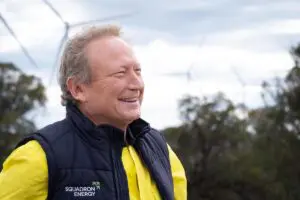The Morrison government has confirmed it clashed with a key energy market body over gas price assumptions, suggesting that the government applied pressure in an attempt to advocate for a bigger role for gas in the energy system.
Speaking to a senate estimates hearing on Monday, officials said that there had been a disagreement between the Morrison government and the Australian Energy Market Operator (AEMO) over gas price assumptions to be used in the Integrated System Plan, with the government suggesting AEMO’s assumed gas prices were too high.
The Morrison government has advocated for a ‘gas-led economic’ recovery to the Covid-19 pandemic, which has been used as justification for using public funds to support the development of new gas resources and new supporting infrastructure. The plan has been criticised as primarily serving as an excuse to prop up the gas industry.
The Morrison government insists that expanding Australia’s gas production that prices will fall. However, many market analysts, including the ACCC, have argued that the dysfunctional nature of Australia’s gas market means that increasing supply may not lead to lower prices but could lead to higher emissions.
The Integrated System Plan subsequently released by AEMO in 2020 projected a more minor role for gas in the electricity market going forward, suggesting that no new gas generators will need to be constructed.
Federal energy and emissions reduction minister Angus Taylor subsequently criticised this conclusion, saying that he believed AEMO was wrong on its gas scenarios.
“AEMO has got its forecasts badly wrong on several fronts,” Taylor told radio station 5AA in April. “The most notable is that they have consistently under-forecast the amount of gas we need in the system. We need far more gas than they thought. Their forecasts have just been factually wrong many times, and that’s a problem.”
Former CEO of AEMO, Audrey Zibelman, unexpectedly resigned from the position last year, and it is understood that the resignation, at least in part, was the result of conflict between Zibelman and the Morrison government about the future of gas in the electricity system.
Zibelman subsequently took up a position leading Google’s X initiative, which develops new technologies for the tech company.
Minister for International Development and the Pacific, Zed Seselja, who represented Taylor at the senate estimates hearing, told a senate estimates hearing on Monday that there was a disagreement between the government and AEMO over gas price assumptions, as the government had the view that gas prices would be lower into the future.
“I think it’s fair to say that the government sought to understand and raised I think the very clear discrepancy between the ISP gas assumptions and the significant reductions in gas prices over the last 18 months and the forward gas price. So to that extent, I think there was a disagreement,” Seselja said.
“Certainly, we have independent bodies to give all sorts of independent advice. But we are also free to question that advice. And particularly, when we see price assumptions that don’t always match what have been the actual results going forward,” Seselja added.
Rachel Parry said that at the time, the Department believed that Australian gas prices could have continued to fall and that the 2020 Integrated System Plan, which predicted a diminishing role for gas in the future electricity system, could be out of date.
“It was our view that when the ISP was reaching a conclusion that we became concerned that the gas price assumptions that had been used to underpin the ISP were almost a year out of date,” Parry said. “So we wanted to make sure that we were testing the ISP outputs, in terms of what happens if those gas prices continue to go south and does that change the outcome of the ISP.”
Parry added that the government believes that there are many analysts predicting lower gas prices but did not identify which ones.
“We have a lot of different market analysts who would suggest that gas price assumptions and forward gas prices are decreasing,” Parry said.
Federal energy and emissions reduction minister Angus Taylor is understood to have put pressure on the Australian Energy Market Operator (AEMO) to model a ‘gas led recovery’ based scenario as part of its next Integrated System Plan, due to be released in 2022.
The modelling scenario was subsequently relegated to a ‘sensitivity analysis’ rather than as one of five core scenarios after being criticised by major players within the energy market as being unrealistic.







